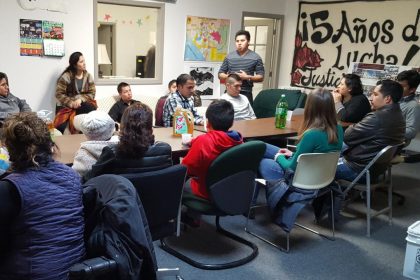
This post was originally published on the Migrant Justice Justicia Migrante website.
They were all at Migrant Justice last weekend for a historic tri-state gathering of agricultural workers.
Immigrant workers from New York, Maine, and Vermont gathered together to share organizing models and build solidarity across industries and state lines. Members of Mano en Mano (Maine), Workers’ Center of Central New York (Syracuse), Nuestra Voz de la Comunidad (Maine), and the Worker Justice Center of New York packed the Migrant Justice office over the weekend to hear from Vermont dairy workers about our game-changing Milk with Dignity program.
We opened Friday evening with a presentation a welcome and a history of our “5 years of Struggle” (and counting!) for Fair Food and human rights:
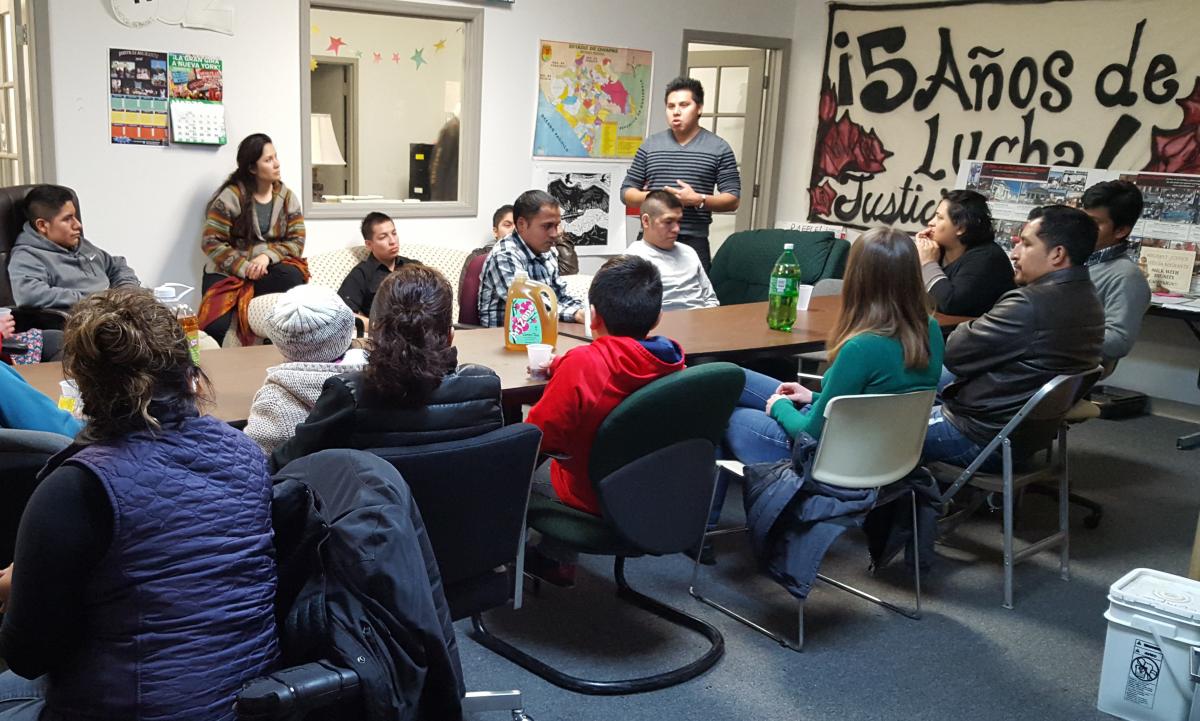
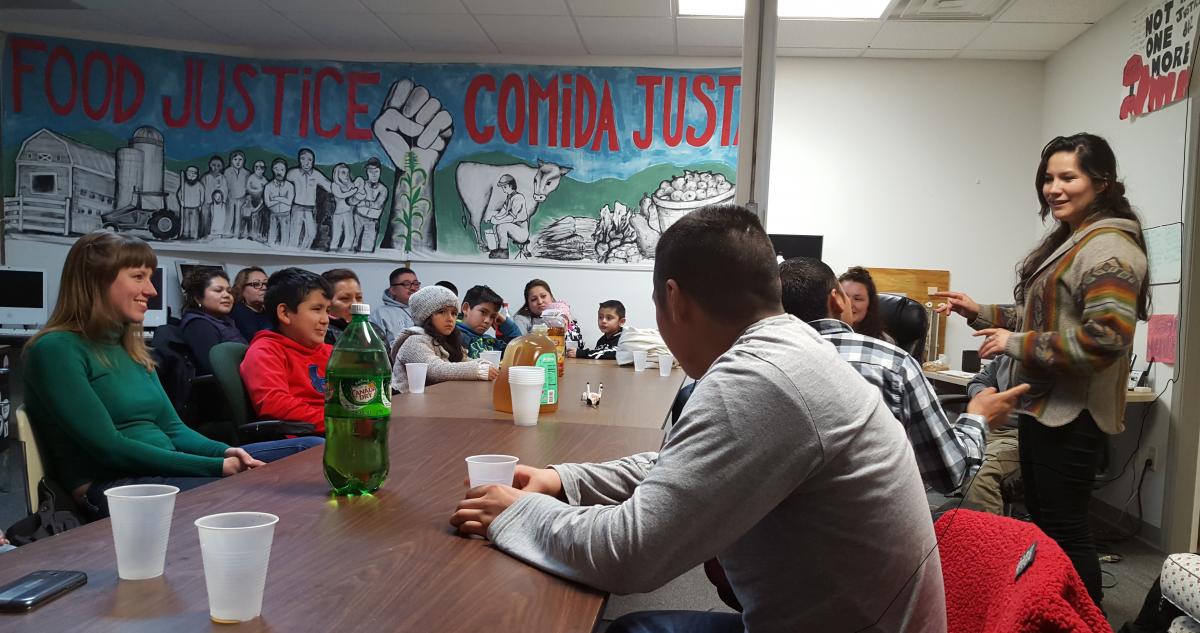
On Saturday, Migrant Justice Coordinating Committee member Carlos Diaz opened the day with some inspiring words:
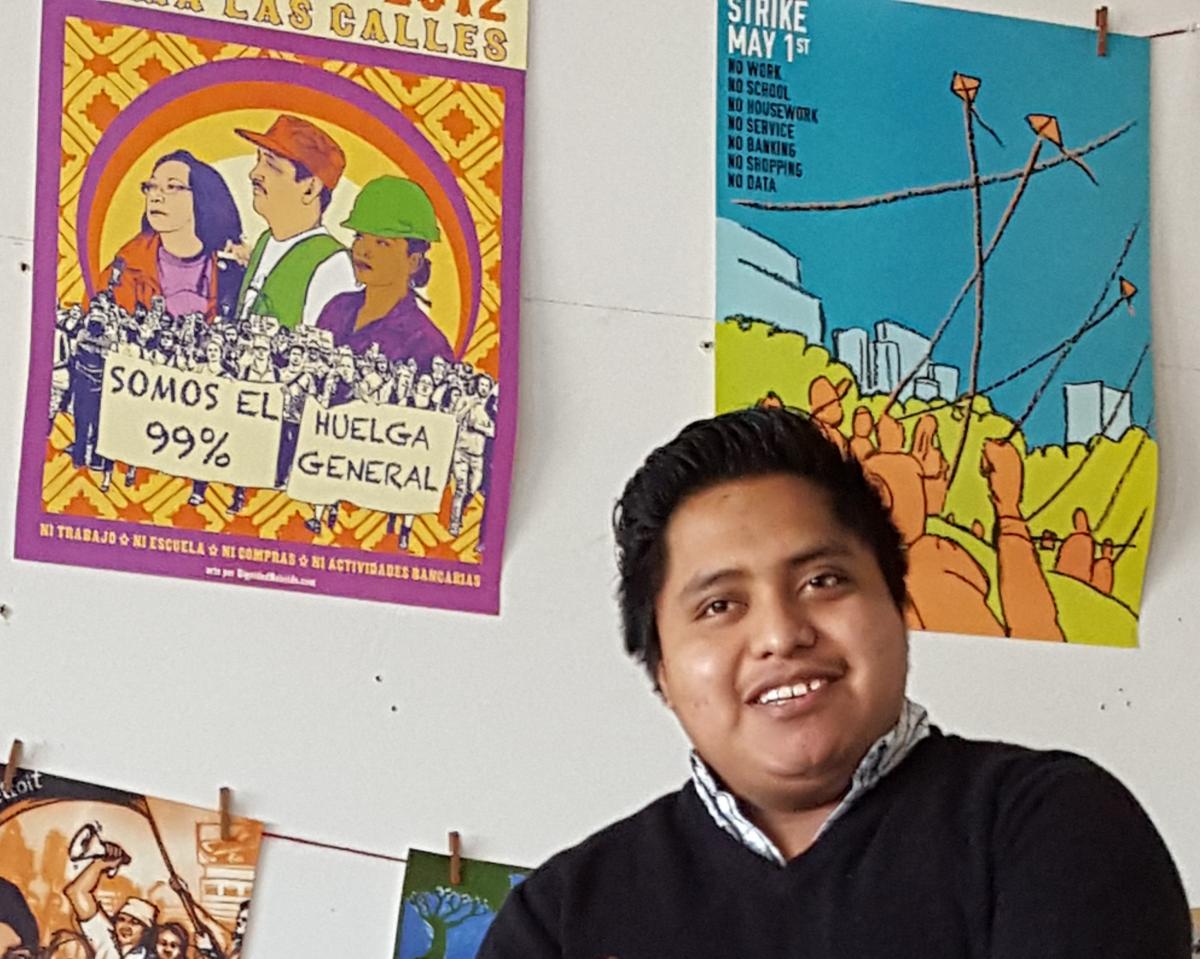
We introduced ourselves, sharing our hopes for the historic gathering:

Marita from Migrant Justice presented on our organizing model of Worker-driven Social Responsibility:
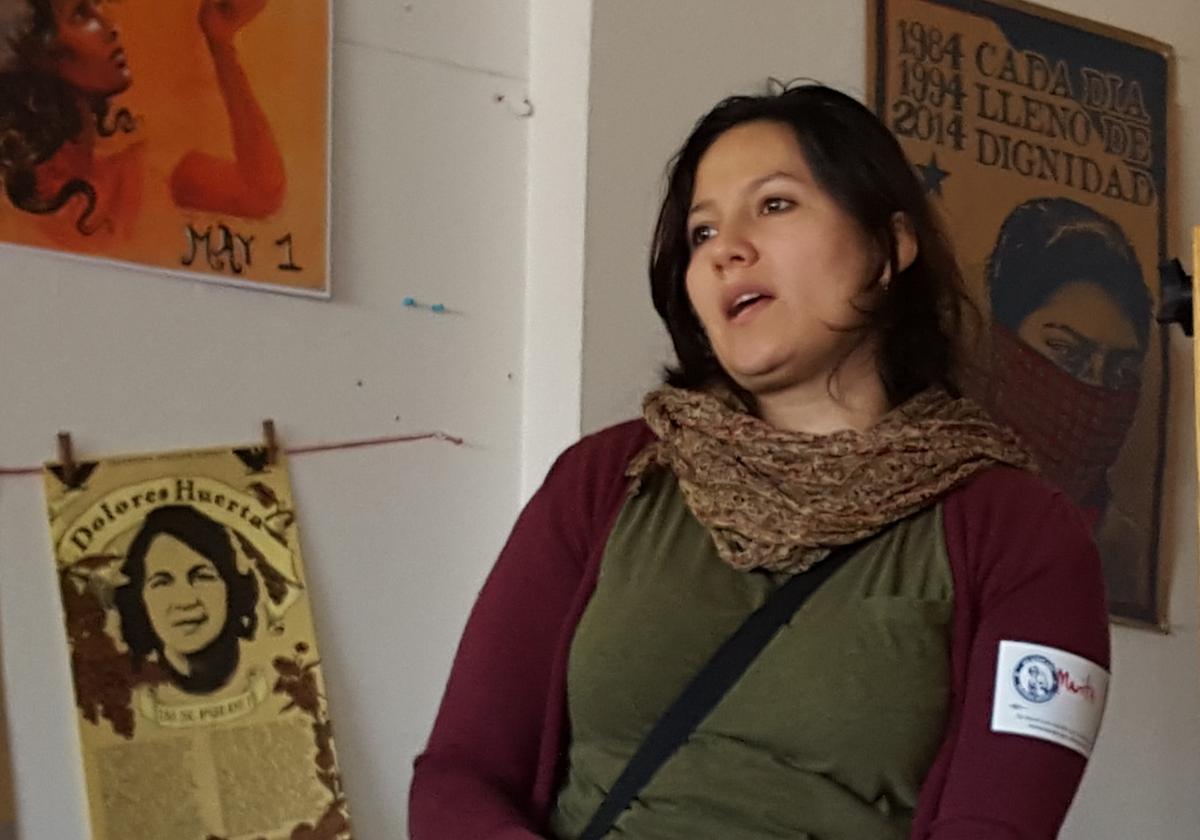
Both adults and children listened intently:

Our guests spoke about what it’s like to work in their industries, and the organizing initiatives that they’ve undertaken:

And we mapped out common problems through the “Tree of Life” activity:
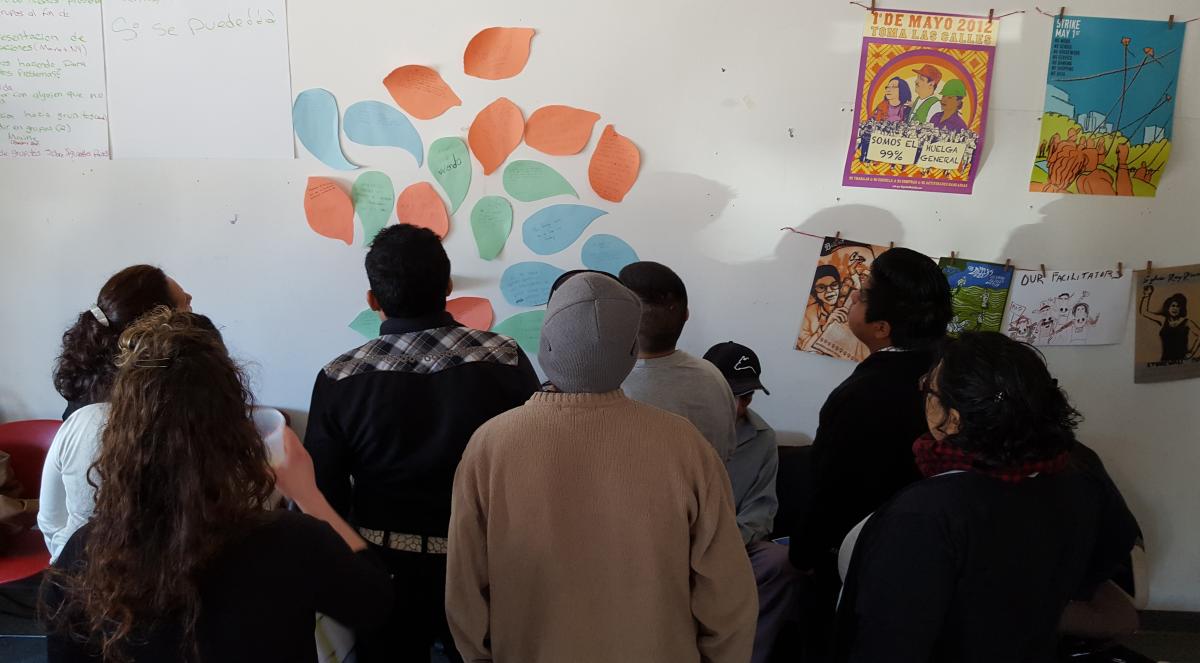
We had a delicious home-cooked meal, made fresh by a Migrant Justice member, and eaten under the “Fair Food” banner:

After lunch, our guests had a lot of questions about how Migrant Justice won driver’s licenses in Vermont. Coordinating Committee member Victor Diaz passed around his license so workers from Maine and New York could see the fruits of our labor:

Workers also wanted to know more about the Milk with Dignity program. Dairy workers from New York took careful notes as we laid out the basics of our program: mobilizing consumer pressure to create justice throughout the supply chain:
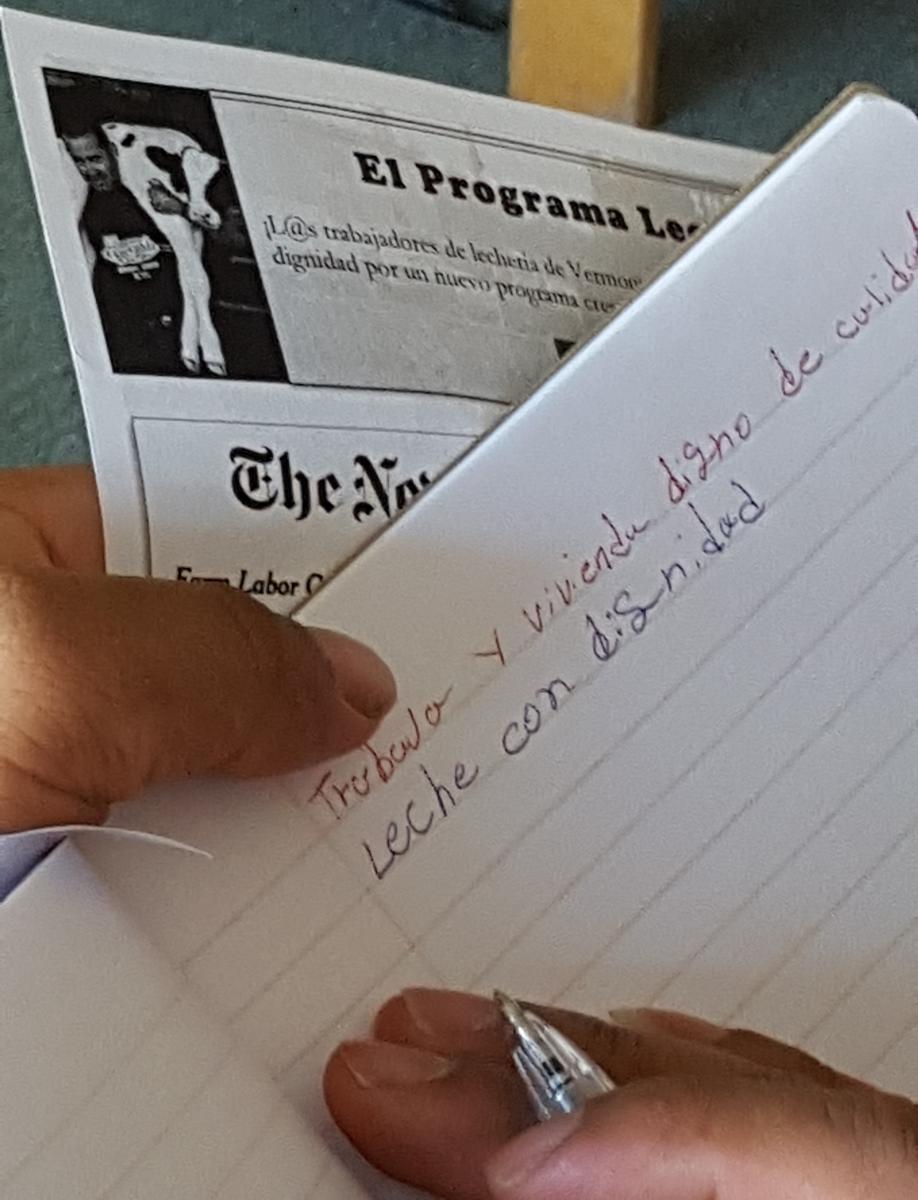
And we ended the summit with high spirits and a new resolve to conitnue organziing for our human rights!
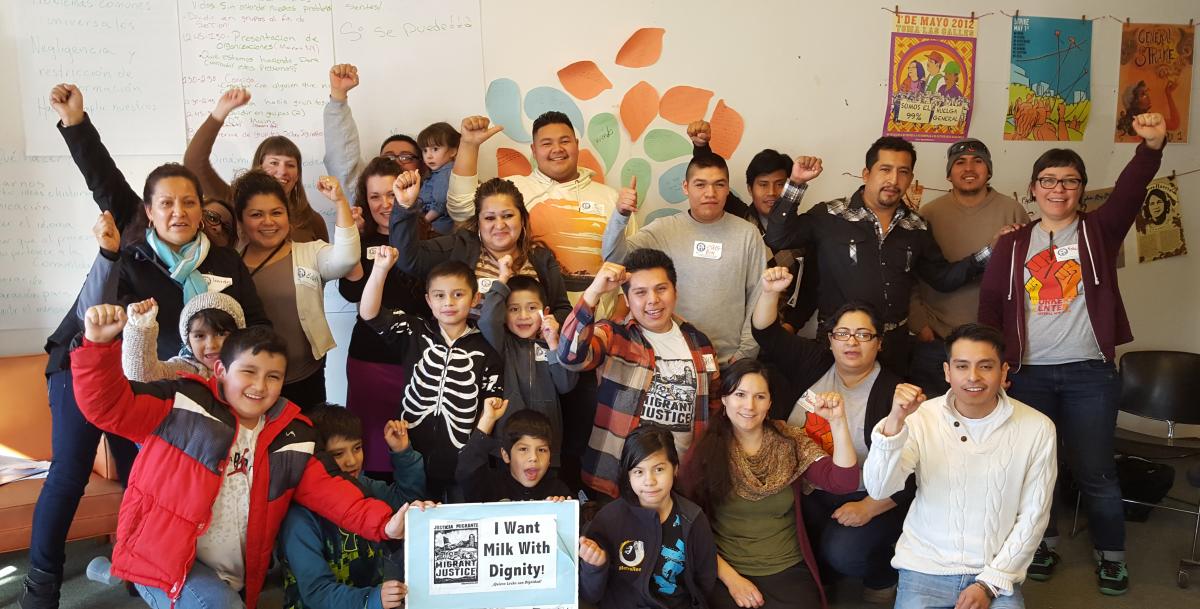
Our mission is to build the voice, capacity, and power of the farmworker community and engage community partners to organize for economic justice and human rights. We gather the farmworker community to discuss and analyze shared problems and to envision collective solutions. Through this ongoing investment in leadership development, members deepen their skills in community education and organizing for long-term systemic change. From this basis our members have defined community problems as a denial of rights and dignity and have prioritized building a movement to secure these fundamental human rights to: 1) Dignified Work and Quality Housing; 2) Freedom of Movement and Access to Transportation; 3) Freedom from discrimination; 4) Access to Health Care. – Migrant Justice




